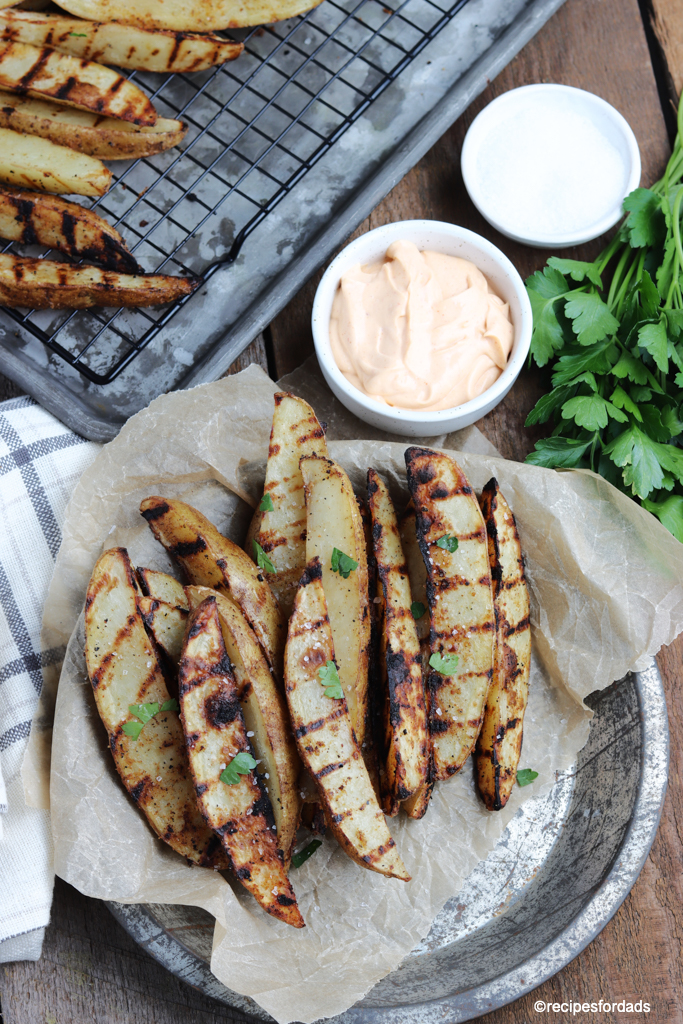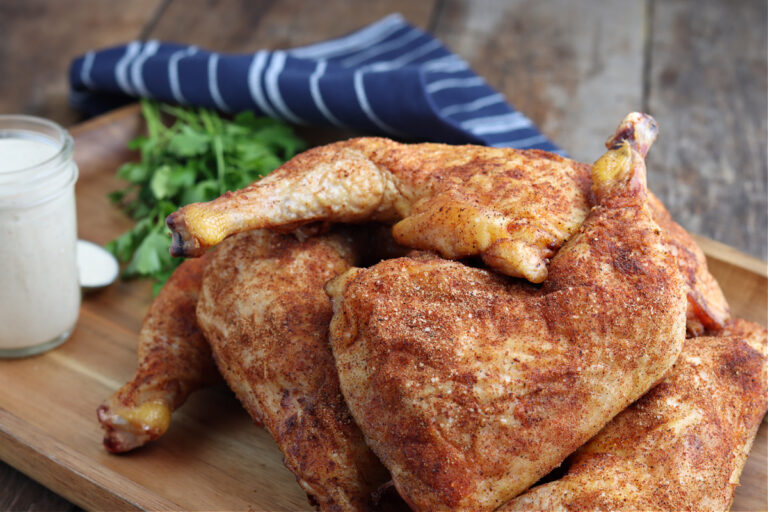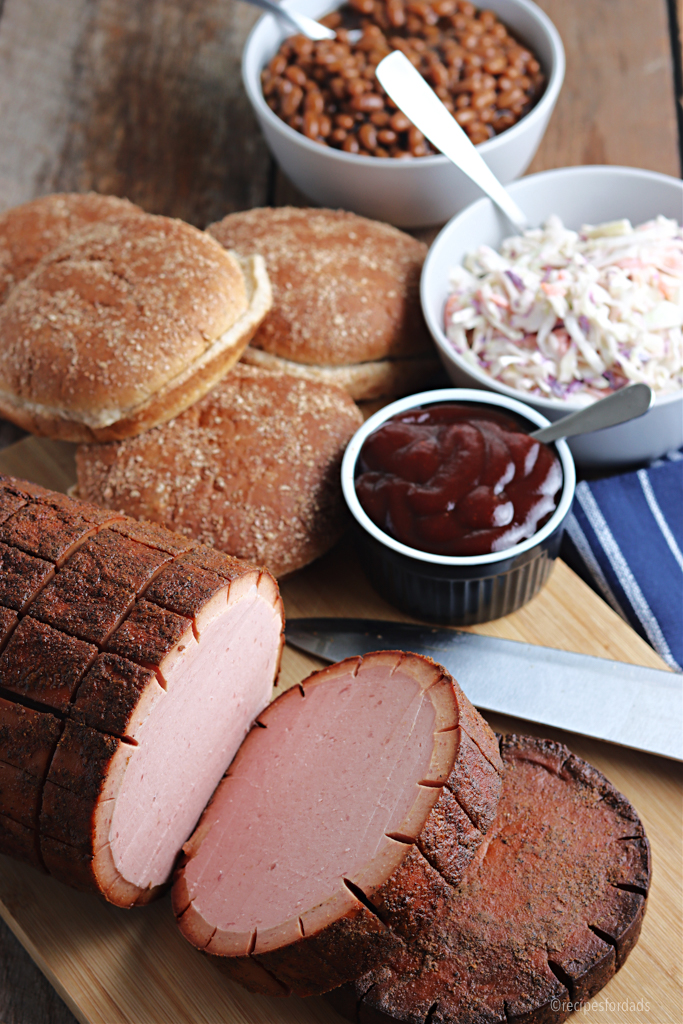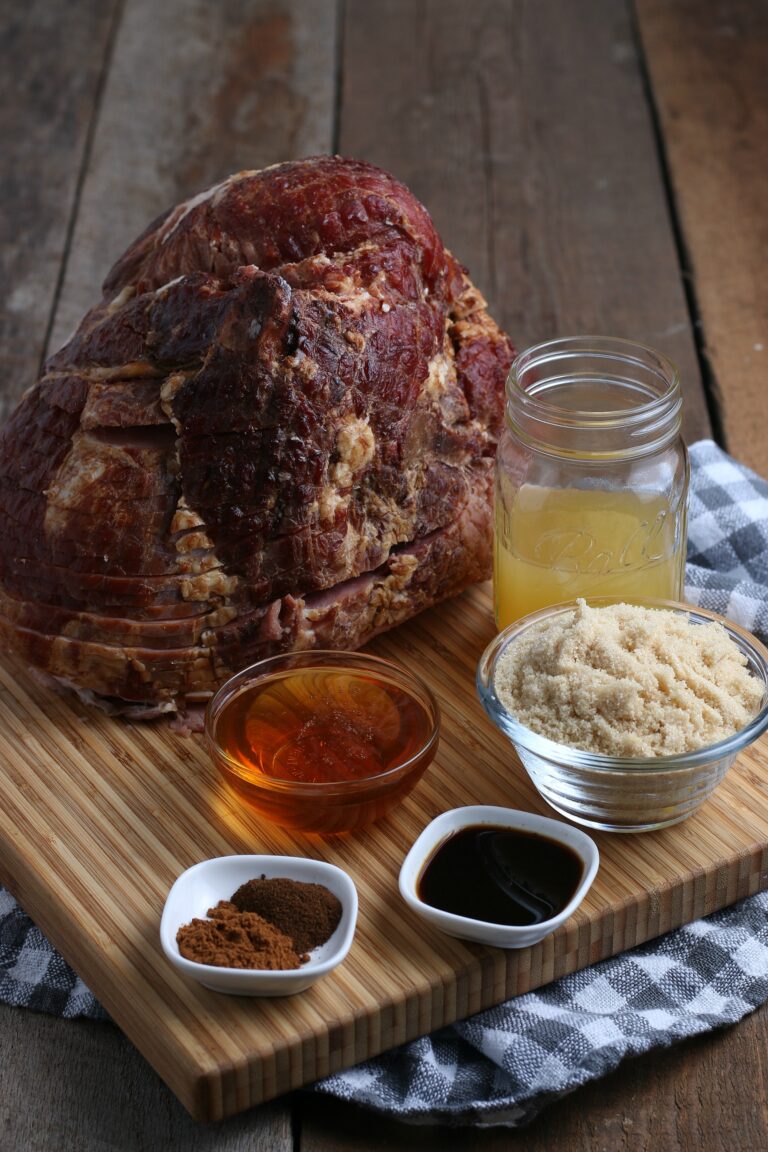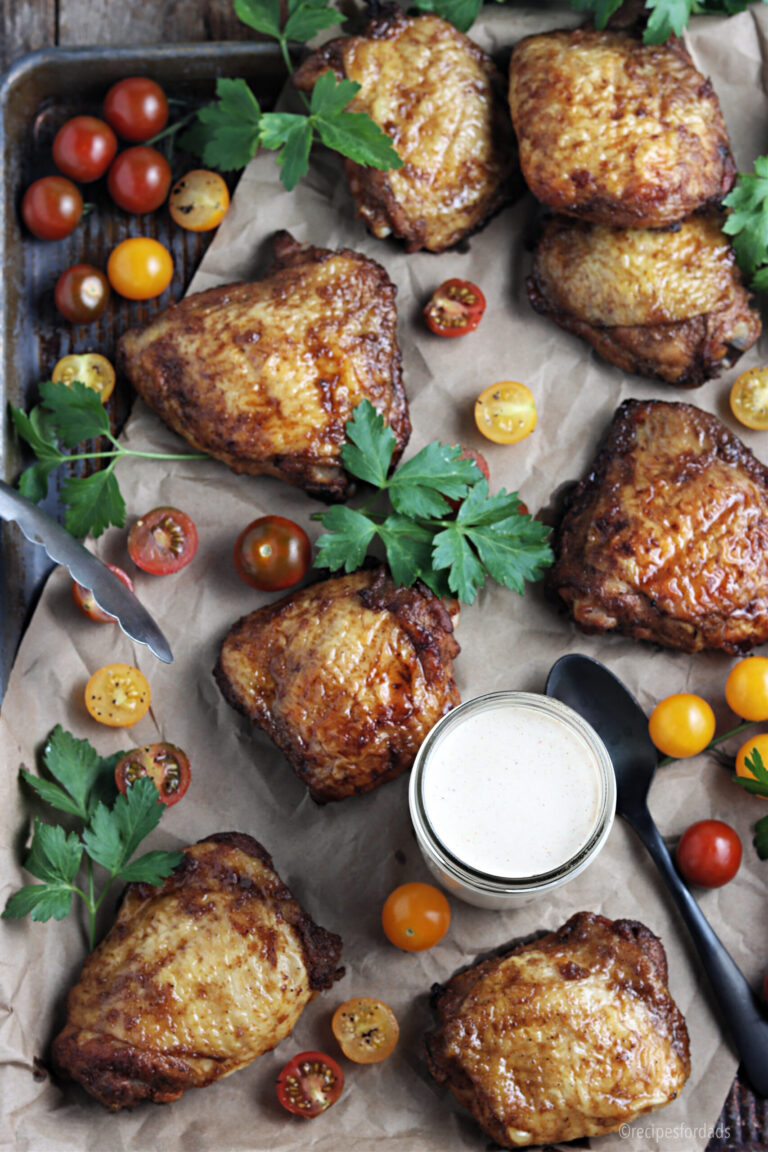This post contains Affiliate Links. Read my full disclosure for more info.
How to marinate chicken. Almost anyone who’s ever made chicken has Googled that exact phrase. Whether it’s grilled, smoked, pan-fried, or baked, chicken is one of the most marinaded meats out there.
As often as chicken is marinaded, it’s still a mystery to many people. Unlike other meats like beef or pork, chicken has a specific window of marination time to get this perfect.
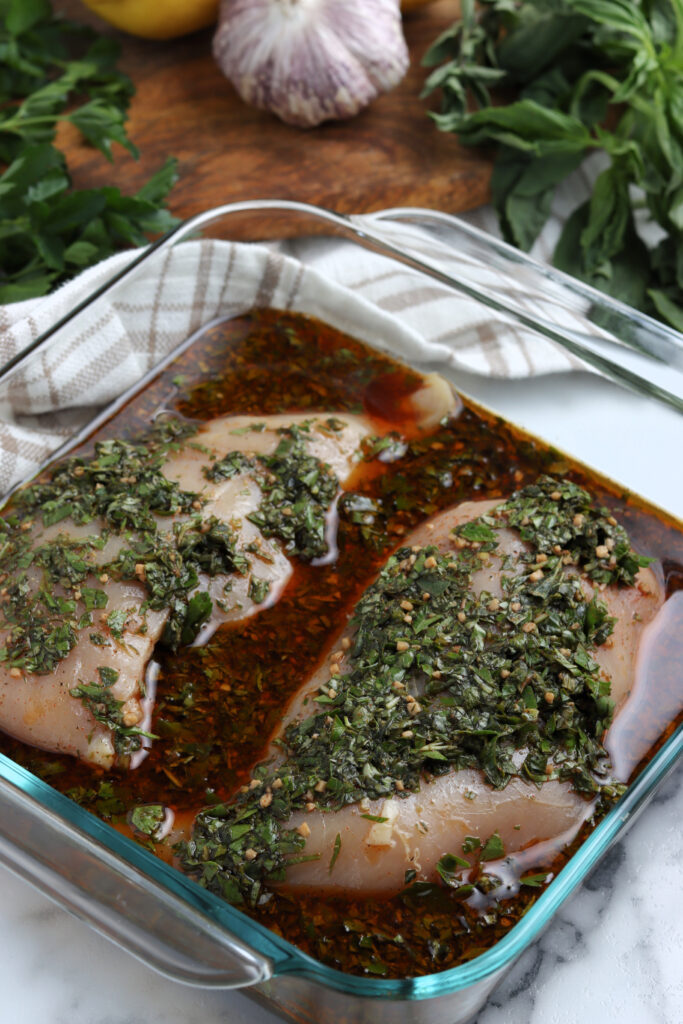
If it’s marinated too long, it becomes soft and mushy. If it’s not marinated long enough, the flavor doesn’t penetrate the meat fully or tenderize the chicken at all.
Marinating chicken is an art, and today, we’re taking an art class. We’ll talk about how to marinate chicken, why we marinade it, and everything else you might want to know about one of the most common ways of preparing chicken for cooking.
What is a Marinade?
Before we get into the actual marination process, let’s talk about what exactly a marinade is. You already know at least one part. It’s a liquid that you add to chicken. However, it’s so much more than that.
There are all kinds of chicken marinade recipes out there, from incredibly basic to some that seem to require almost every ingredient you can find in the store. However, they can all generally be divided into two distinct categories – acidic and enzymatic.
Acidic Marinades
Acidic marinades use mild, naturally occurring acids in certain liquids to keep the chicken tender and moist. These acids denature the proteins in the meat, forming a sort of “mesh” at the microscopic level that traps moisture in the meat.
Some examples of acidic liquids include:
- Vinegar
- Apple juice
- Wine
- Buttermilk
Enzymatic Marinades
While acidic marinades keep meat tender and juicy by trapping the moisture inside the meat, enzymatic marinades actually tenderize the meat from the inside out, breaking down the connective tissue and muscle fiber.
Things like raw pineapple, figs, papaya, honeydew melon, ginger, and kiwi all contain enzymes collectively known as proteases – protein enzymes – which are the enzymes that break down the protein in the meat.
What Isn’t a Marinade?
Knowing what a marinade isn’t is as important as knowing what a marinade is. You see, brining and marinating are two methods of tenderizing meat that are often confused. While they may be similar in that they both use liquid to tenderize meat, they are not the same.
Both marinades and brines work by using a liquid to help keep meat moist and tender, but the way they do it is different. Marinades use either enzymes to break down the connective tissue in the meat to keep it tender or acids to help trap moisture in the meat. Brines work differently.
Although brines can contain all kinds of ingredients, two things that they always contain are salt and water. Brining is a process in which meat is soaked in salty water with the primary goal of helping keep the meat moist. However, marinades are primarily used to flavor meat, with moisture and tenderization being a sort of bonus.
How to Marinate Chicken Safely
Safety is of utmost importance when working with any raw meat, especially chicken. It can be easy to let your guard down when it comes to safety because you know the chicken and the marinade will be cooked later, killing any bacteria that may be in the liquid. However, it’s important to remember that you’ll come into contact with both your chicken and the marinade before you actually cook it.
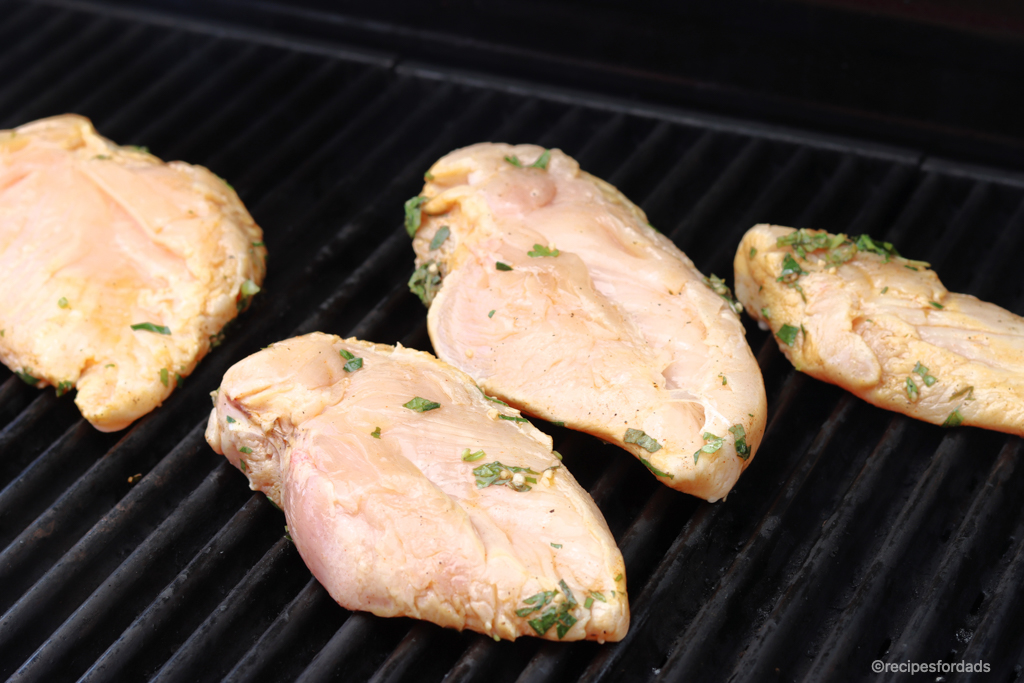
Don’t Rinse Your Chicken
Rinsing chicken is an old-time safety method for working with chicken. The idea is that rinsing the chicken helps rinse off the bacteria.
Science has shown that not only does rinsing chicken NOT reduce bacteria levels in the slightest, but it actually causes bacteria to be transferred to other surfaces via the splashing water that occurs when the chicken is rinsed.
Frequently Wash Hands
Wash your hands every time they come into contact with the raw chicken or the marinade in which the chicken is soaking. Bacteria from the chicken can transfer to the liquid, so even if you don’t touch the chicken, if you get the marinade on your fingers, a simple wiping with a towel won’t cut it.
Marinade in the Refrigerator
Never marinade your chicken at room temperature. Even the most acidic marinade doesn’t protect against bacteria-borne illness. Always marinate your chicken in the refrigerator to slow the growth of bacteria and keep the meat and the marinade safe until it’s time to cook.
Use the Right Container
First and foremost, any container you use to marinate your chicken should be air-tight. The best options include:
- Ziploc bags
- Glass containers with locking lids
- Reusable plastic containers with locking lids
Don’t ever use aluminum containers to marinate your chicken. The aluminum might react with the acids in your marinade, impacting the flavor and even the color of your chicken.
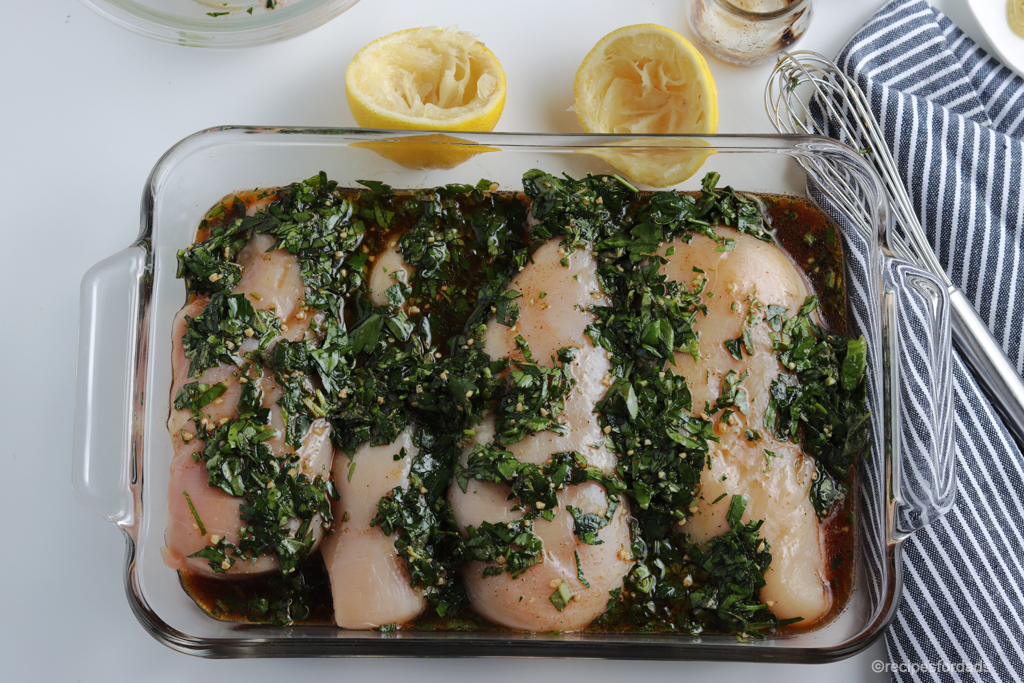
Dispose of Excess Marinade
Unless you plan to boil it for a few minutes before using it in something else, always discard excess marinade that has come into contact with raw chicken. It is not safe if not properly cooked. To ensure that I and my family never get sick, I always throw out my excess marinade.
How to Marinate Chicken – Timing
Timing is key if you want to know how to marinate chicken properly. Marinading chicken is definitely a case where the old saying “too much of a good thing” applies.
If you don’t marinade your chicken long enough, you won’t have much flavor at all. It will basically be a waste of your marinade ingredients. On the other hand, if you marinate the chicken too long, a couple of things could happen depending on the type of marinade, neither of which are good.
Chicken left in an acidic marinade for too long will actually become tougher as the proteins in the meat squeeze closer together. They essentially get compressed.
On the other hand, too much time in an enzymatic marinade results in chicken that is, well, mush. And gross.
Chicken is far less dense than beef or pork, so it takes less time to marinade. You’ll never under any circumstances marinade your chicken overnight. In addition, it’s important to remember that marinating chicken is not a one size fits all process.
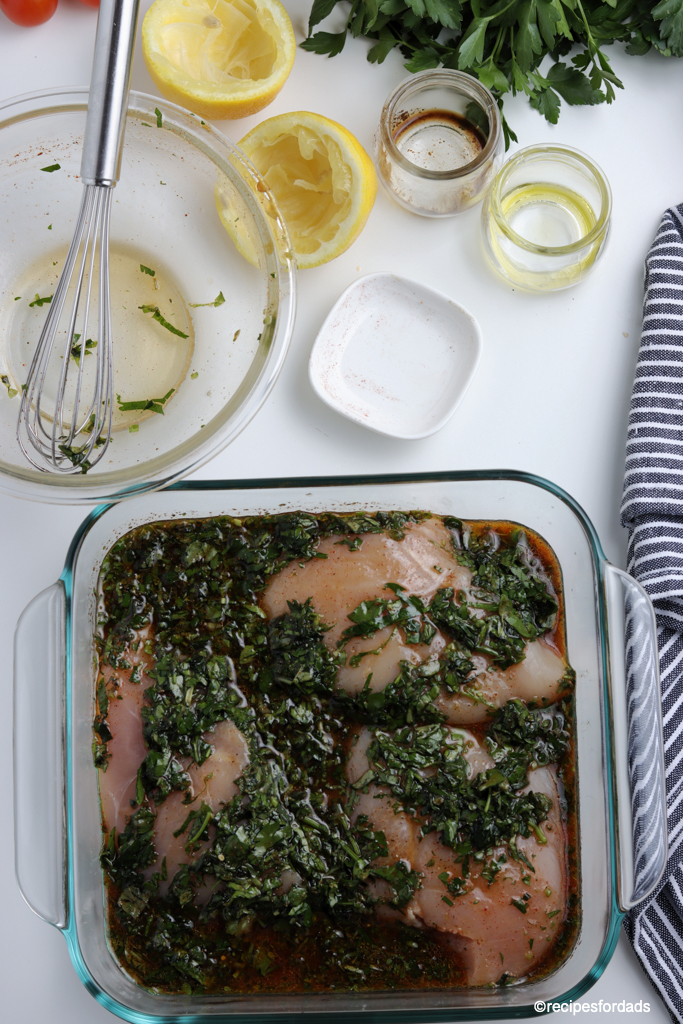
For example, marinating a whole chicken will take at least four hours to get good penetration, however, depending on the size of the bird and the marinade, it could take as long as twelve hours.
Conversely, marinating chicken breasts can take as little as 30 minutes to get good flavor penetration. Thighs, on the other hand, fall somewhere in the middle, taking anywhere from an hour to six hours to marinate.
To help you marinate your chicken correctly, take a look at this handy dandy, bullet point guide.
- Whole chicken – Four to twelve hours.
- Chicken breast (boneless, skinless) – Thirty minutes to two hours.
- Chicken breast (bone-in, skin-on) – One to two hours.
- Chicken quarters, bone-in thighs, or wings – One to six hours.
How to Marinate Chicken – Flavoring
The flavor possibilities are almost endless when it comes to marinading chicken. There is almost no end to the combinations that you can use.
That being said, there are some basic flavors that everyone knows and loves. These are:
- Teriyaki
- Jerk
- Lemon Pepper
- Red Wine
- Carne Asada
- Apple Juice
- Citrus (Pineapple, Lemon, Orange, etc.)
- Buttermilk
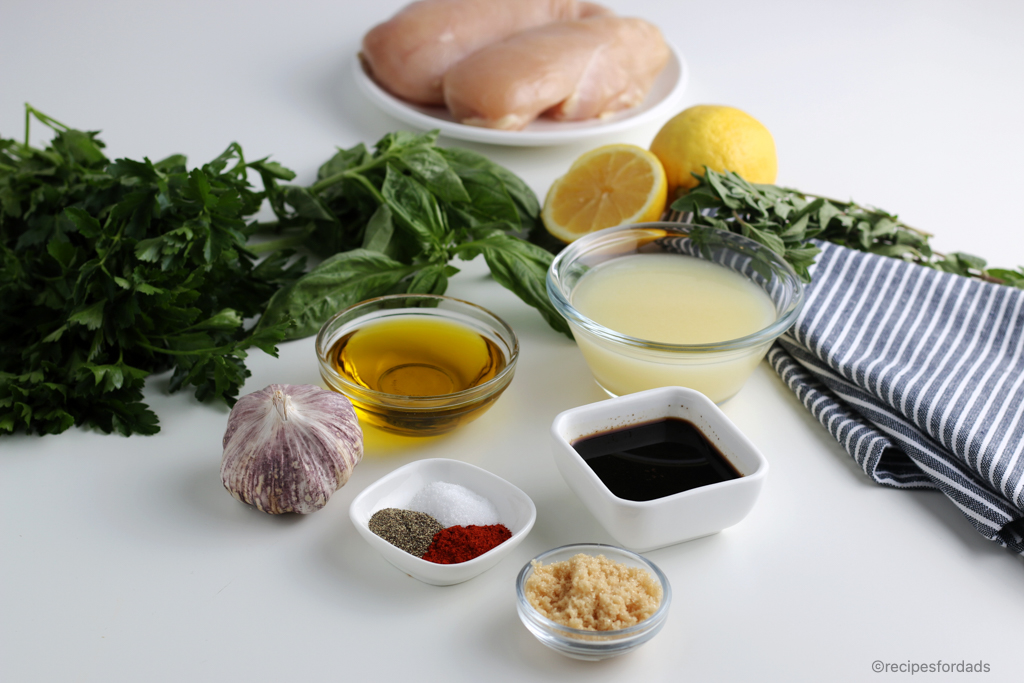
The most important thing to remember when choosing your flavors is to be cognizant of whether they’re an enzymatic or acidic ingredient. You want to choose one kind of marinade or the other so you have more control and know exactly how long to marinate the food. Acidic and enzymatic marinades not only work differently but also require different timing.
How to Marinate Chicken – Tips
Before you go, there are a few tips to help you get the most out of your marinaded chicken. These are simple tips, but they can help drastically improve the outcome of your bird.
No Poking the Meat
I’ve seen so many people pierce their chicken with a fork before placing it in the marinade. The idea is that the small holes will allow the marinade to penetrate more easily. However, it doesn’t.
Marinades work by penetrating the surface of the meat and acting on the proteins within it. All they need is surface area to work, and there’s plenty of that already.
Piercing the meat won’t make the marinade work better, however, it will ensure that there are little holes all over the chicken that allow all the juice to leak out of it when it’s cooked.
No Excess Marinade
When grilling or smoking, be sure you let all the excess marinade drip off of your chicken before putting it on the grill or in the smoker.
None of it will stick to your chicken anyway. It will simply slide off the meat and down onto either your coals or the bottom of the smoker, burning and making a stinky mess you’ll have to clean up later.
No Basting
Basting chicken with marinade is a common practice, but if you’ve marinated your chicken correctly, there’s no need to do it. The flavor is already in there. This is especially important when grilling or smoking.
If you’re constantly opening up your grill or smoker to brush on more marinade, you’re altering the temperature by allowing cooler air into the cooking device.
Grilling and smoking both require even temperature to make great meat, so keep that lid closed and that temperature constant.
Let the Marinade and the Cooking do the Work
Marinading chicken imparts tons of flavor which carries over through the entire cooking process. Just let the marinade and the cooking method of your choice do what they do, and you’ll have delicious chicken. That’s all there is to it.
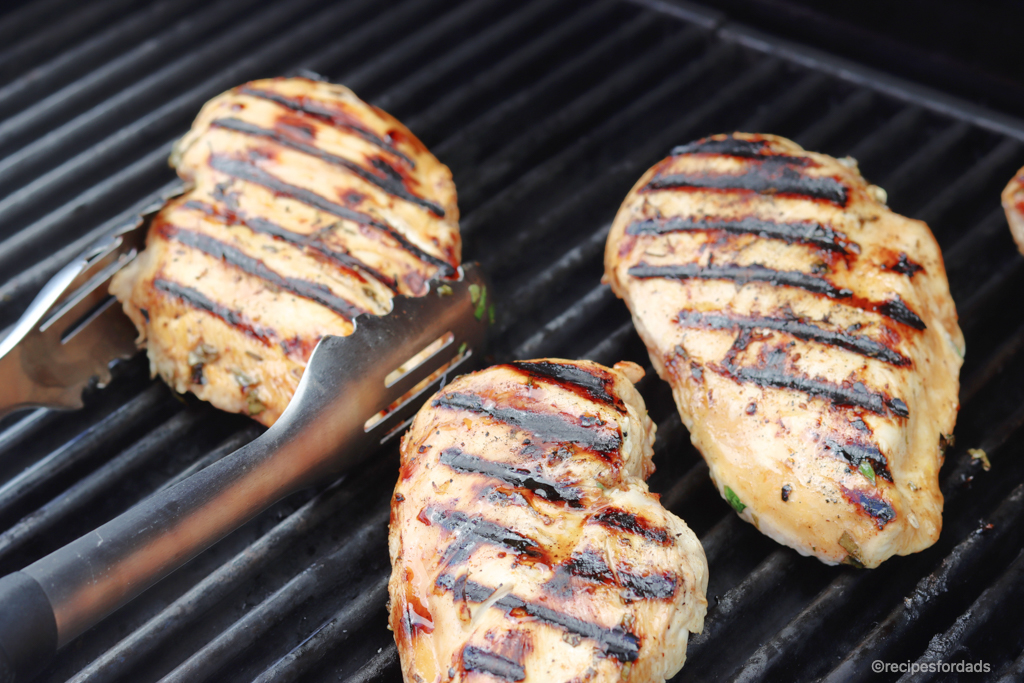
Now You Know How to Marinate Chicken
There you have it. Now you know how to marinate chicken. The next step is cooking it, the easiest part of all.
The great thing about marinating chicken is that when you’re done, you can cook it using any method you prefer.
Marinading the chicken adds great flavor, but it doesn’t require any special cooking techniques.
So now that you know how to marinate chicken, give it a try. It’s a great way to impart some fantastic flavor to your meat, and it works well whether you’re smoking, grilling, baking, or using some other cooking method.


